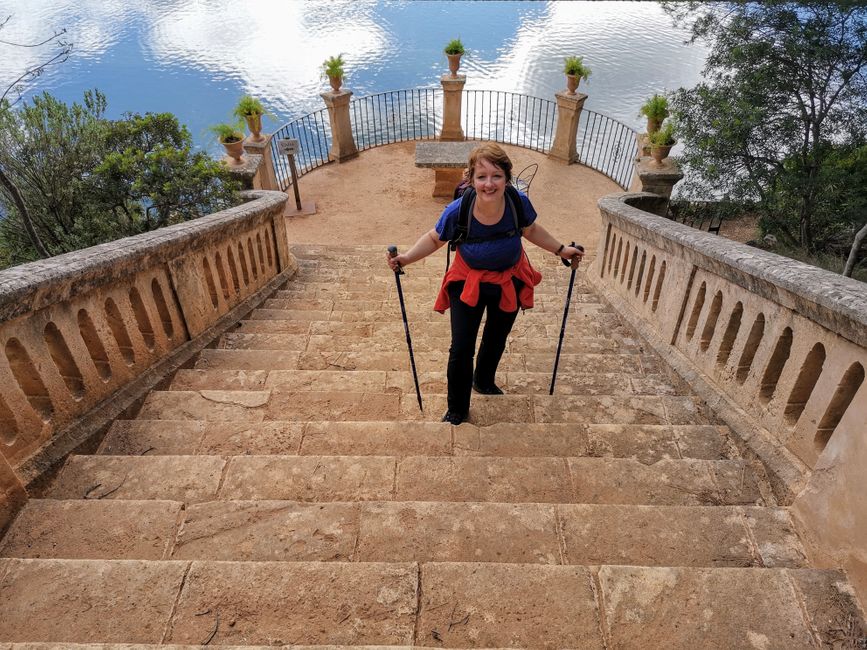Day 12, May 1st, 2021: How to create a blog? And why can't you tell if a couple is married by their last name? Questions upon questions...
प्रकाशित: 03.05.2021
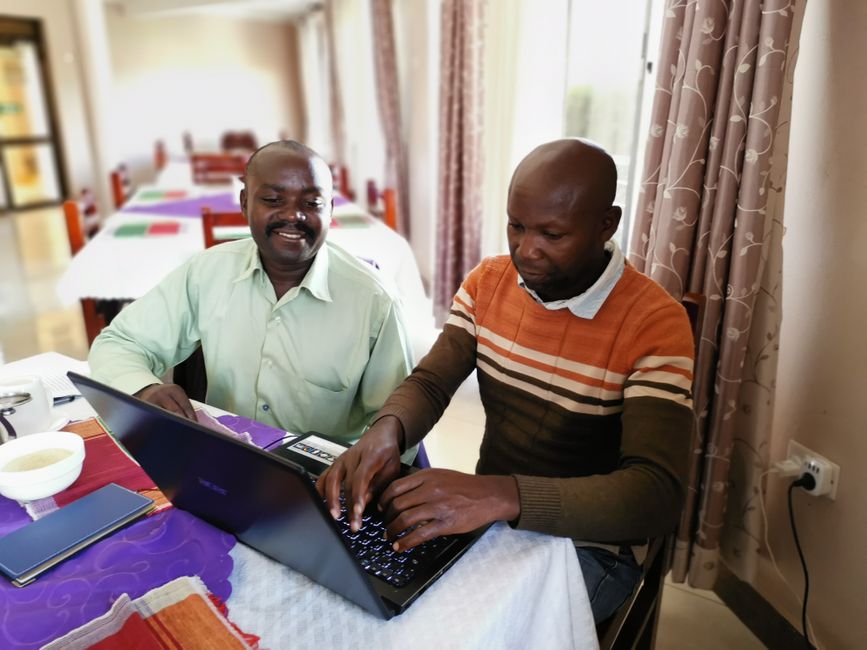
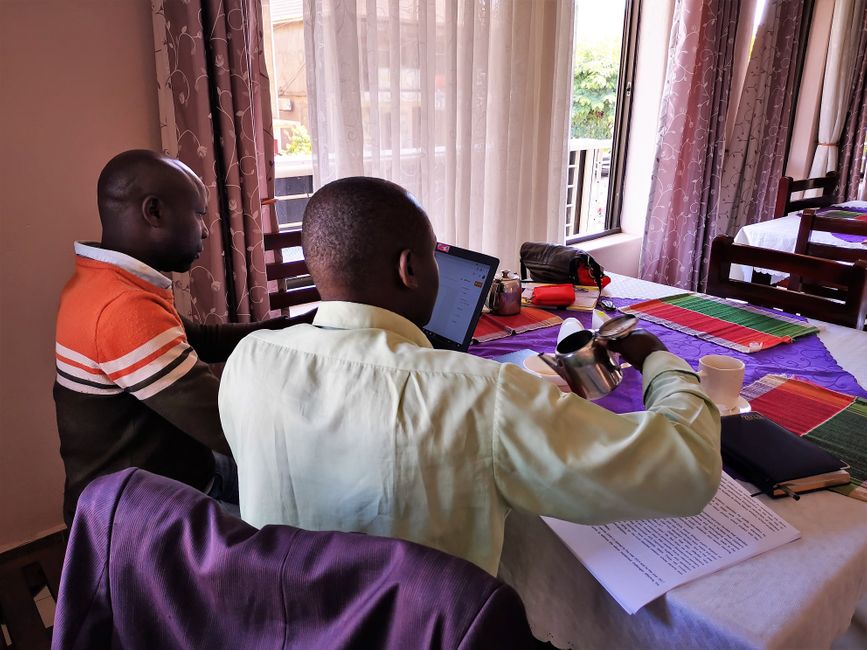
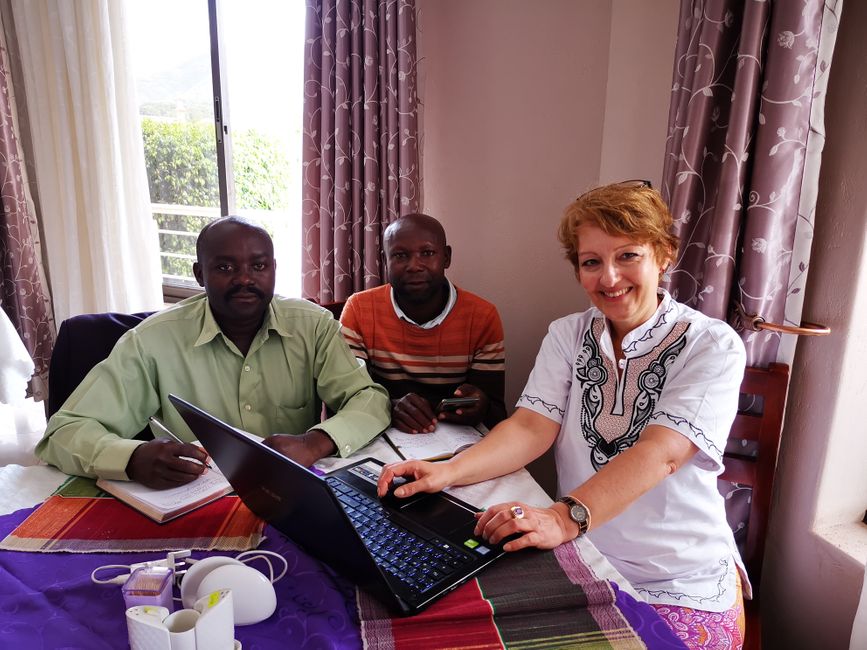
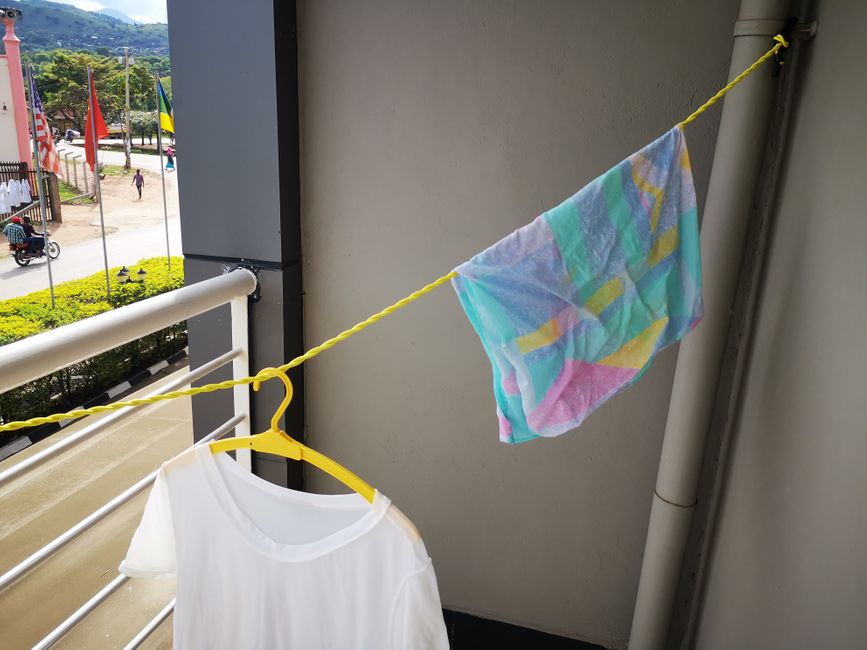
समाचार पत्रिका के लिए सदस्यता लें
Ndumbuko asked me to show him how to create a blog. I'm happy to do so, even though I wouldn't consider myself an expert in it. I've only recently started writing my travel blog. The research is still fresh in my memory and I have a good sense of the advantages and disadvantages of some blogging platforms. Content creation is also familiar to me. Bwambale joins the training session and so we spend Saturday morning in the hotel restaurant because we have WIFI access there.
I recommend the blogger service blogspot.com by Google. For beginners in blogging, creating a blog on this platform is simple and the interface is intuitive. The free platform (which is a requirement for us) offers many options to make the blog interesting. In addition, the blog can later be expanded with Google Ads, but I advise against it for now because advertising on a blog can be critical and if you decide to do it, it should be relevant to the blog's content. (@Vakantio: Sorry, but we needed an English-language platform. Otherwise, I would have recommended you too).
I will take care of the setup and then Bwambale and Ndumbuko will be the authors. Here is the first blog post of Divine Mercy Primary School.
In my blog post from April 28th (Day 9), I wrote that transfer thinking can sometimes be a problem here. I did not mean it in a derogatory way - that's why I would like to give some explanatory words: In my experience, our way of thinking is strongly influenced by the environment in which we grow up. In our Western countries, we are trained from an early age to approach problems analytically and logically. In a country like Uganda, people are incredibly creative and flexible. They have no choice but to bravely face the new challenges that life brings here. Imagine how much more we could achieve if we could better integrate the different ways of thinking and perspectives from all cultures!
During the blog creation, I ask my two colleagues why you can't tell who is married to whom by their last names. The board of directors of Rwenzori Community Vision for Development also includes the wives of my colleagues. But this is not evident from their last names. In addition, here people happily switch between first and last names as their preferred name, which initially confused me completely.
My following explanations refer to the Christian population, which makes up more than 70% of Uganda's population. About 13% are Muslims and the rest follow traditional religions. All faiths live peacefully side by side in Uganda and respect each other.
Marriage in the church is an official act recognized by the government. It is also possible to enter into a purely civil marriage. But that is rather the exception. The people here are very spiritual and attending church on Sundays is a fixed part of the week (just like the Friday prayer for Muslims). In addition, community members do not like it when people only get married civilly, as they see it as a lack of commitment to their faith. In both forms of marriage, the last names remain unchanged, meaning that both women and men retain their family name. The wife can take the husband's last name (the reverse is not possible, and there are no double names either), but this requires another formal process that costs money. Since there is no benefit from changing the last name, almost everyone gives up on doing so.
There is no "logic" when it comes to using first and last names in terms of formal address with last name and familiar address with first name. For addressing someone, the last name or first name can be used without adding Mrs. or Mr. in front. So Bwambale is the first name of my colleague, but he is also frequently addressed by his last name. On the other hand, my other colleague's last name is Ndumbuko and he exclusively uses that because his first name is frequently used here and he finds his last name more unique. When introducing oneself, the last name is mentioned first and then the first name.
Ndumbuko also sheds light on why some people here react so strongly to photos (see blog post from Day 10). It seems that photos are still misused for criminal purposes. This includes both pictures of individuals and pictures of shops (e.g., as evidence to secure a loan from a bank).
We have lunch together today at a local restaurant around the corner. I choose Posho (maize porridge) with peanuts (peanut sauce) and beef, although the beef is tough again, so I won't order meat anymore in the future. In contrast, the fish, mostly tilapia, is always very tasty.
Afterwards, my two colleagues accompany me to a booth of Airtel, Uganda's leading mobile service provider, which is represented everywhere with mobile booths. I need more data volume again, this time for my Ugandan SIM card. We meet an old classmate of Bwambale there. Later I find out that he asked Bwambale for money. He started consuming drugs during school and has been addicted ever since. Alcohol and drug addiction are more common in Uganda, the two tell me. That's why RWECO-VIDE is trying to raise awareness. For example, at the monthly meetings with the farmers, they highlight the dangers associated with drug use.
समाचार पत्रिका के लिए सदस्यता लें
उत्तर
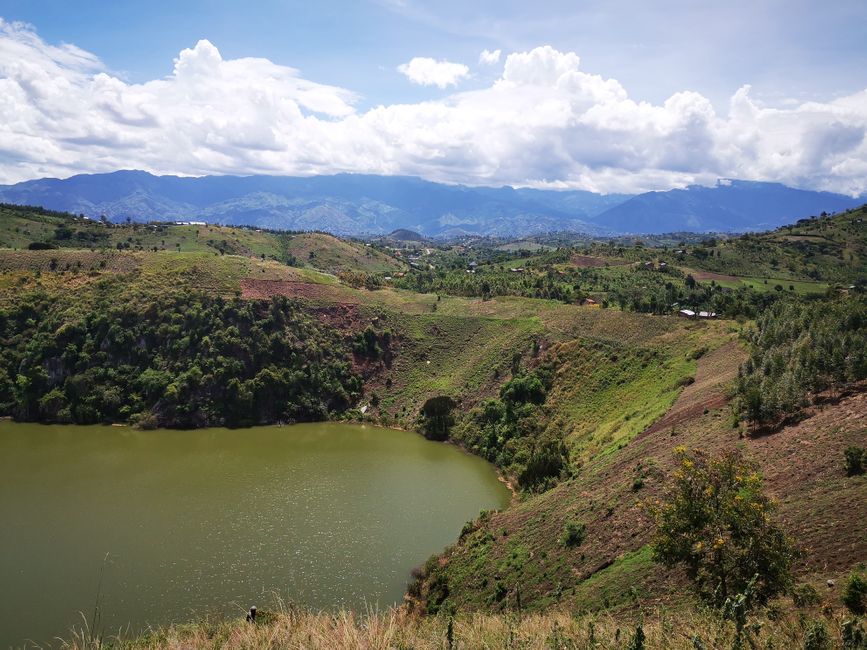
यात्रा रिपोर्ट युगांडा

